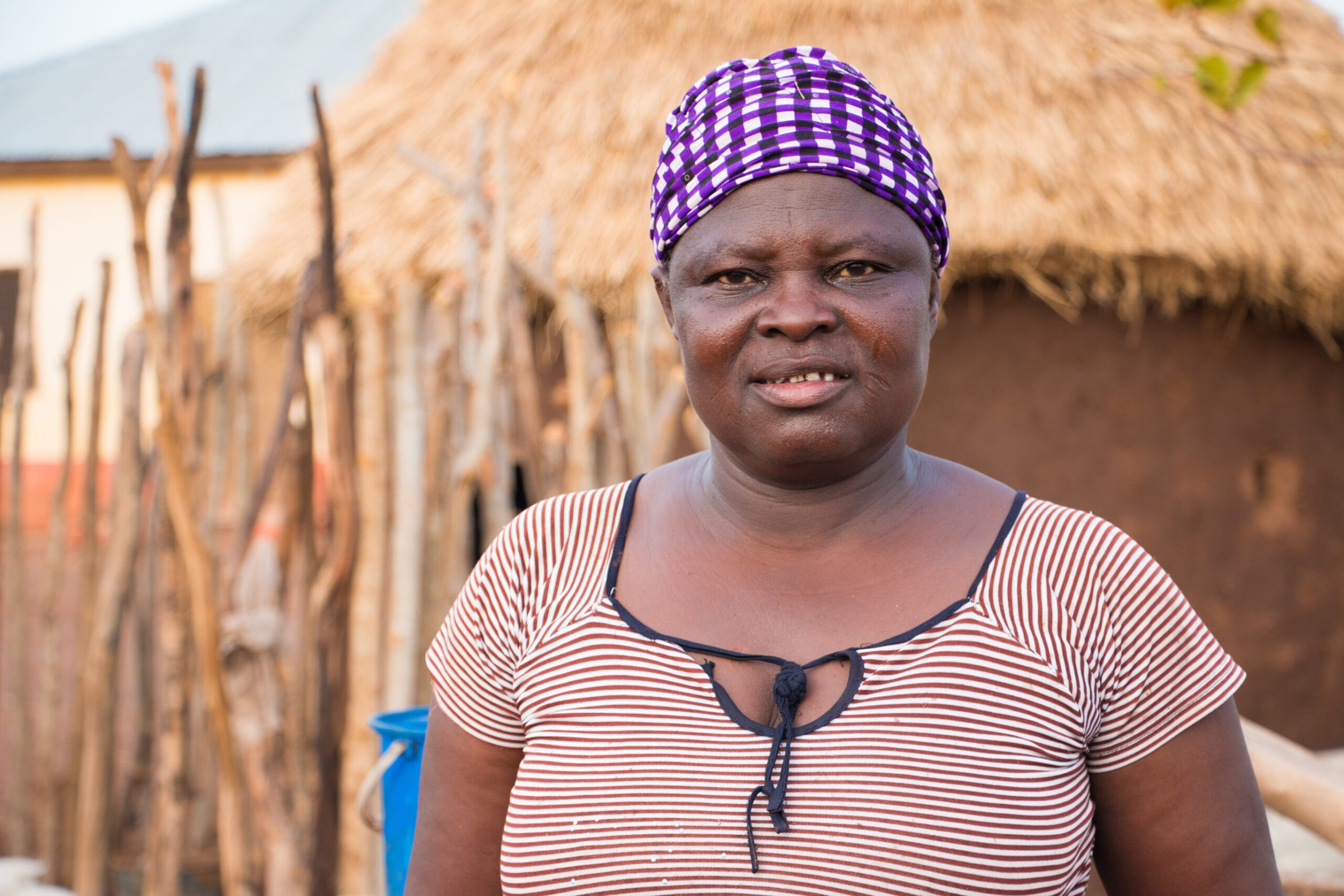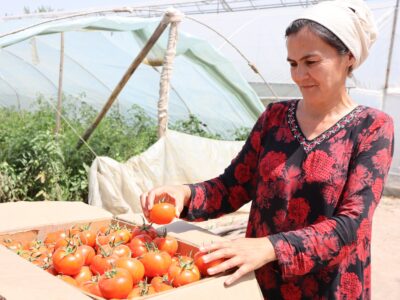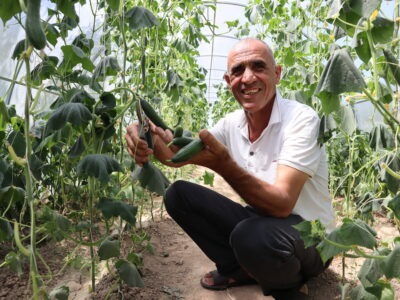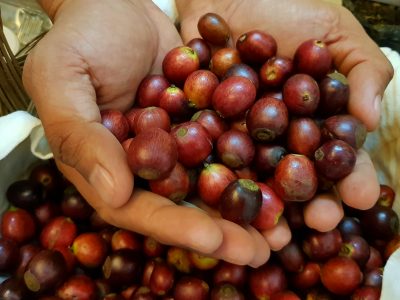
In April 2019, Fati Zakari, who lives in Nyong Yapalsi in the Karaga District of Ghana’s Northern Region, successfully became an outgrower business owner. As an outgrower, or contract farmer, Fati is now part of a scheme that links networks of smallholder farmers with domestic and international buyers. Through an outgrower scheme, buyers gain a stable crop supply, while farmers gain access to new markets, often receiving technical assistance along the way.
In Ghana, the Agricultural Development and Value Chain Enhancement II (ADVANCE II) Project, funded by USAID and implemented by ACDI/VOCA, is teaching smallholder farmers like Fati how to adopt good agricultural practices. With project support, Fati also received high-quality inputs, including hybrid seeds, fertilizers, and agrochemicals from Agricare.
“I started row planting, using certified seed, applying appropriate fertilizer with good recordkeeping, and can now produce and sell more for reinvestment into my farm and family’s upkeep.”— Fati Zakari, a female outgrower and project participant
After taking part in trainings, Fati adopted better techniques and increased her yields from two metric tons of maize in 2016 to nearly four metric tons of maize in 2018. By June 2019, she had begun cultivating 20 additional acres of maize and 10 additional acres each of rice and soybean.
In the first half of 2019, Fati provided 30 smallholder farmers with hybrid seeds. She also ploughed 35 acres of rice, 30 acres of maize, and 10 acres of soybean for 45 smallholder farmers. “I was happy when I saw my farmers increased their production to three metric tons per hectare in 2018 from one metric ton per hectare in previous years,” Fati said. “I am hopeful that their yields would keep increasing due to the support I continue to give them.”
Fati now supports 90 smallholder farmers, including 60 women, and leads her village savings and loan association. She organizes meetings with her outgrowers, during which she trains them on farming practices, such as land preparation, row planting, and post-harvest handling. She also supplies them with seeds and chemicals for pest control and provides them with ploughing services.
Fati often speaks on radio programs to help educate other smallholder farmers on good agricultural and management practices. She sometimes even conducts monitoring visits to their farms.
Through the ADVANCE II Project, Fati connected with Opportunity International Savings and Loans Limited and negotiated a loan to buy a tractor to offer more efficient ploughing services to her outgrowers. “As soon I am able to access the loan to get the tractor, I [will] work hard to increase the acreage of soya so that I can also buy a planter in order to attain higher yields,” Fati said.
The ADVANCE II Project supports the scaling up of agricultural investments to improve the competitiveness of the maize, rice, and soybean value chains in Ghana. Through this unique model, the project supports emerging commercial agriculture and smallholders, like Fati, simultaneously.
Learn more about the USAID’s Agricultural Development and Value Chain Enhancement II (ADVANCE II) Project.
Learn more about our work in Ghana.






